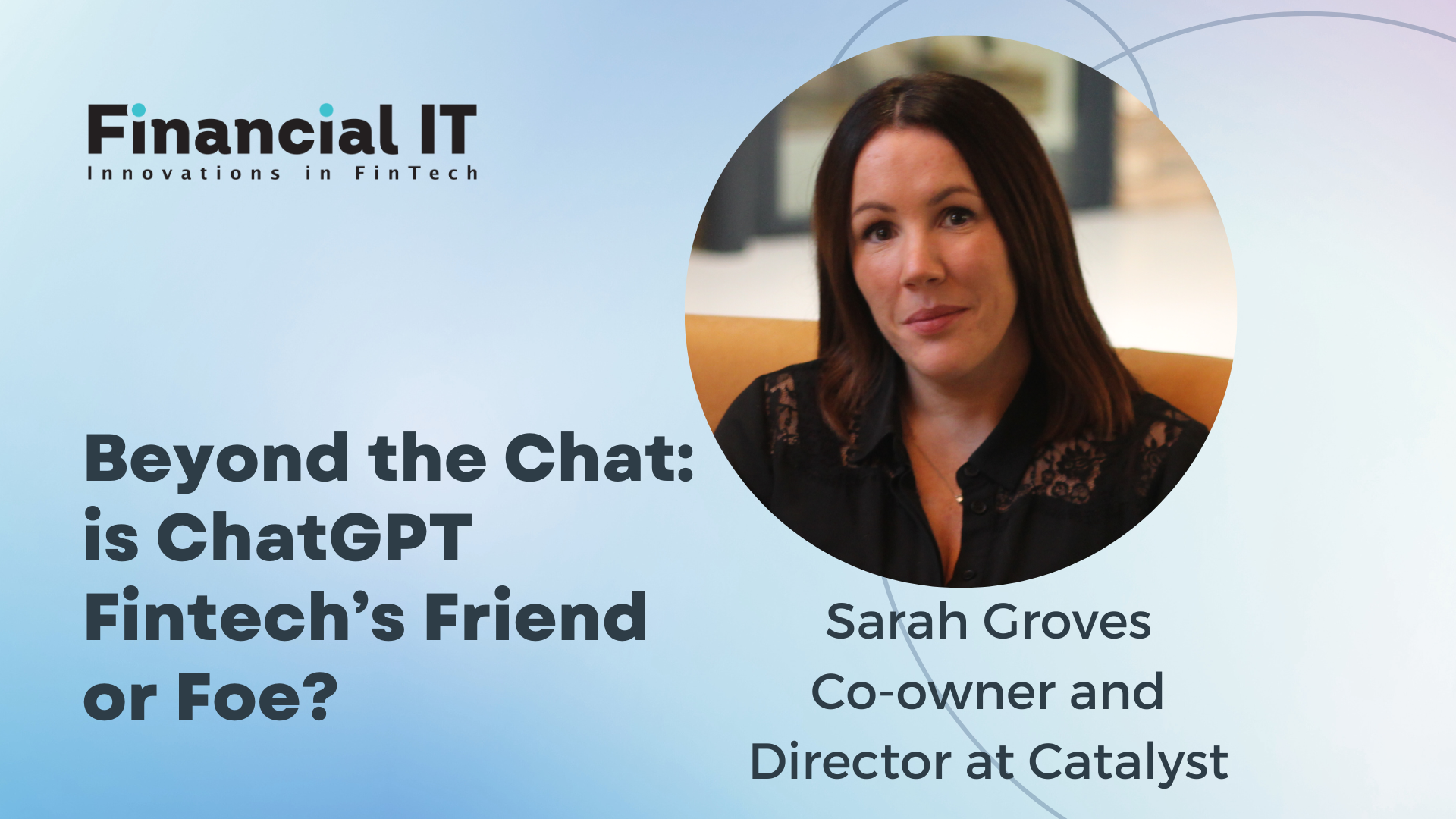Beyond the Chat: is ChatGPT Fintech’s Friend or Foe?

- Sarah Groves, Co-owner and Director at Catalyst
- 08.06.2023 07:15 am #fintech #chatgpt
For years, having a financial advisor, bank manager, or the like might have involved lots of paperwork, phone calls and attending face-to-face meetings. But this is all changing.
Today’s digital-first customers now want it all from the online experience provided by the financial providers they buy into. As with the wider digital marketing landscape, they have come to expect a compelling digital journey, one which engages them from the offset, anticipates their needs and provides relevant, transparent and simple products and services.
Inherently though, this new-age approach to financial marketing does present challenges – particularly in terms of creating a stand out in an increasingly crowded market.
Enter ChatGPT – a powerful tool that can help firms enhance their marketing activities at a pace and with ease.
For the uninitiated, ChatGPT is a state-of-the-art machine learning model created by OpenAI which can generate human-like responses to natural language queries and conversations. While this type of technology isn’t new, what makes it ‘game-changing’ is its ability to generate text that is, perhaps, as close to the real deal as it gets.
The result has been an ongoing debate as to its role in the future landscape - especially for financial firms looking for ways to cull costs and gain efficiencies amid ongoing economic turbulence.
But, as with all major innovation leaps, the reality is that there are a number of pros and cons to consider when it comes to potentially joining the marketing automation bandwagon.
First of all, it’s important to consider what areas of your marketing needs require a limited skillset. For example, how much time does your marketing team spend proofreading copy for mail-outs, brochures, reports or your website? How much time is spent translating content into multiple languages? Generally speaking, generative AI can provide tremendous support in terms of taking on regular and routine marketing functions, freeing up significant chunks of time for employees to utilise their skillset on more important strategic and creative focuses.
Another benefit of Chat GPT is that it can be used to create engaging content. This includes everything from social media posts, blog articles, and email newsletters. This can save time and resources, as marketers don’t have to create content from scratch. However, it would still need to be modified for audience, tone, brand messaging and in line with SEO requirements too.
Inherently too, it can prove a fantastic tool in providing a swift and effective response to customer enquiries 24/7 to ensure ‘always on’ customer service at all times – be it answering customer queries, providing support, and even closing sales.
That said though, as robust and compelling as ChatGPT is, it’s not a true threat to human intellect. While it’s certainly an advanced technology, and still very much in the inaugural stages, the reality is that, just like any other computer, it does come with limitations.
Take, for example, one of the most important aspects of any marketing team – creativity. At a fundamental level, all AI tools have limited creativity because it relies on using massive amounts of prior data to learn – therefore any new output can only be generated by what inputs have been made. Put simply, this means that there is no way to truly think of novel ideas that don’t yet exist and therefore don’t have any data to learn from. Therefore, while it can be used to help stimulate and support the creative process, that’s not to say financial firms can simply ask ChatGPT to come up with their next big idea.
Taking the originality conundrum further, there is also the risk of oversaturation of the same content. Say, if all financial providers asked it to ‘write a blog on budgeting’, all blogs on this topic will be the same. Of course, blogs and other online articles are often used to help SEO, so it remains to be seen how brands will gain an organic visibility advantage over competitors using this method.
Also, although ChatGPT can generate human-like prose, it still lacks the emotional intelligence and empathy that a human would possess. This can be a significant limitation in customer service, where emotions and empathy play a vital role in resolving customer issues and building trust. The same too can be said of creative concepts which too often rely on an emotionally-charged connection between brand and consumer. Within this too, generative AI runs the risk of inherent bias and discrimination, meaning a certain level of human intervention is always required.
Lastly, one of the biggest disadvantages of using generative AI is the potential for inaccuracies or misinformation. Since the outputs are trained through trial and error, they are only as accurate as the data and algorithms they are based on – as demonstrated by plenty of examples on social media of AI getting something factually wrong. This is especially important in the finance world where businesses will have access to vital personal information and have a strict duty of care.
Indeed, ChatGPT is a powerful tool that financial firms can use to enhance their marketing activities be it generating content quicker, automating marketing campaigns and maintaining an ‘always on’ service. However, it's important to remember that it still provides no real substitute for the human brain. Thus, to ensure it becomes more a friend than a foe, financial firms must always walk the tightrope between automation and human intervention.





















